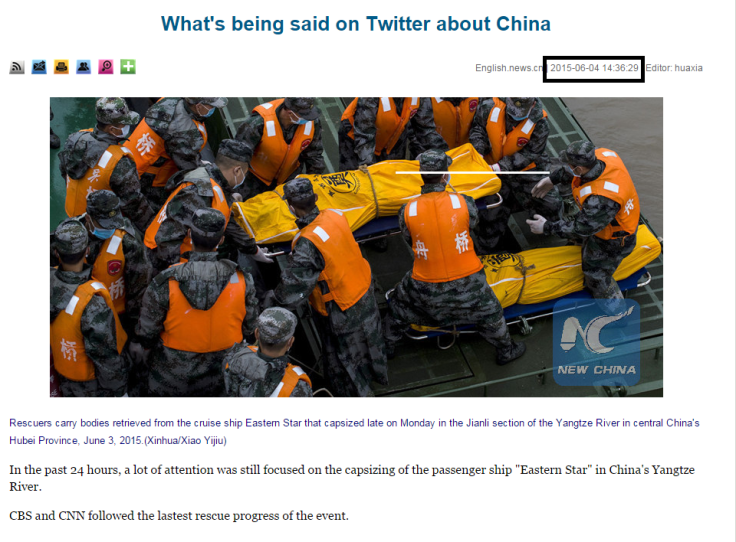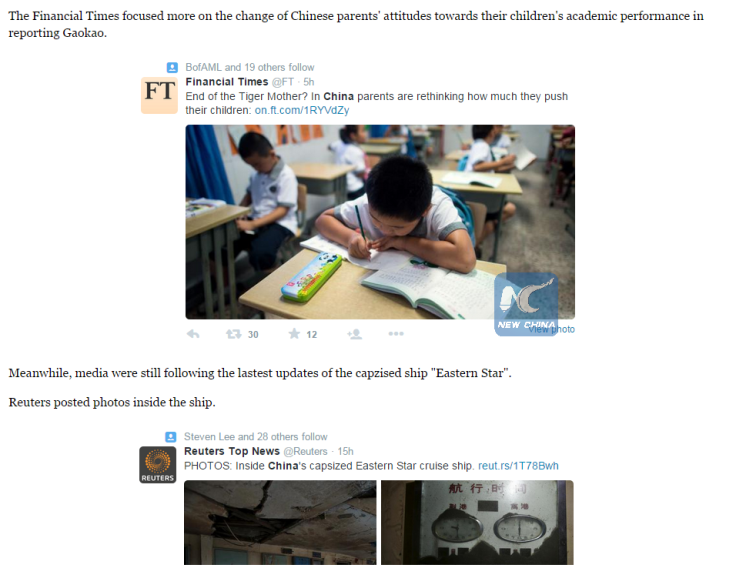Is China Opening Up To Twitter? New Xinhua News Agency Column Using Twitter Despite Censorship

Twitter has not been accessible in China through regular Internet connections since 2009. Now, six years later, China’s state-run news agency has launched a daily column rounding up some of the top tweets about China on the popular social media platform. Is this a sign of warming up to Twitter or just another way to control conversation?
Xinhua’s new column, called “What’s being said on Twitter about China,” began last week as a way to communicate the top stories about China coming from foreign media outlets. The purpose behind the new Twitter-driven column appears to be two-fold: first, to give the illusion that China is recognizing the medium as an important tool to understand how the West views the country; second, to control the reality of what that view is.
Today, the column selected tweets from major news organizations like CNN and the Financial Times, as well as more industry-specific accounts, like the Milan Expo and TechCrunch Twitter accounts. Though Xinhua offers a brief synopsis of the article, the actual news is difficult to access. Because Twitter is blocked in China, Xinhua can only offer screenshots of tweets -- instead of embedding the tweets -- which disables links and images.

Today, for example, CNN’s story about the gaokao -- the Chinese college entrance exam that Chinese high school students just completed -- led the column. Even though the CNN story isn’t blocked in China, Twitter is. This prevents seamless access to the story and sample questions.
In theory, the recaps help form an understanding of the world’s view of China and the stories and issues that have traction overseas. In practice, however, the scope is still very limited.
For example, on June 4, the anniversary of the deadly Tiananmen Square student protests, the column made no mention of the historic event. Xinhua was keeping in line with China’s standard practice of completely ignoring the events that took place 26 years ago and actively censoring mentions of it from international and domestic social media. In this instance in particular, the view that Xinhua offers its readers is limited. Instead, the column mentioned the other big story of the week, the search and rescue efforts for the “Eastern Star” passenger ship that capsized on China’s Yangtze River.
Also, even accounting for the time difference, no mention was made on June 4 or June 5 of an alleged hack by China on American government computer networks, despite the story breaking on June 4 and receiving wide coverage on Twitter.
© Copyright IBTimes 2025. All rights reserved.






















